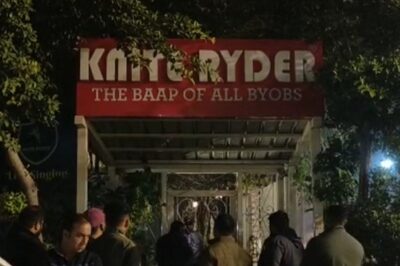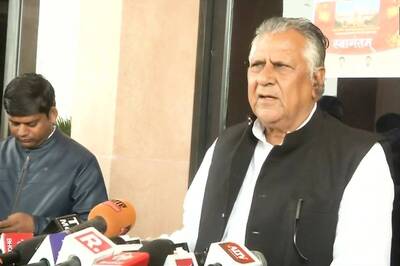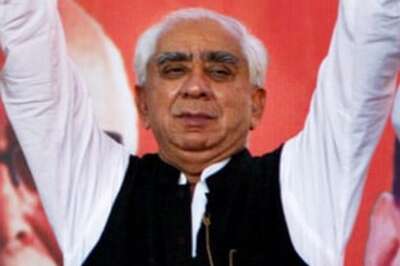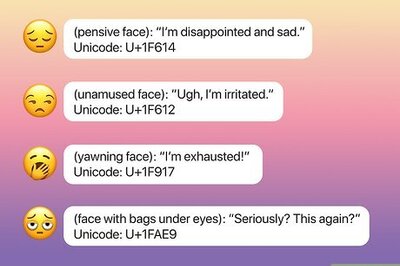
views
The Supreme Court on Saturday cleared the way for the construction of a Ram Temple at the disputed site at Ayodhya, and directed the Centre to allot a 5-acre plot to the Sunni Waqf Board for building a mosque. In one of the most important and most anticipated judgement in India's history, a 5-judge Constitution bench headed by Chief Justice Ranjan Gogoi put an end to the more than a century old dispute that has torn the social fabric of the nation.
The apex court said the mosque should be constructed at a "prominent site" and a trust should be formed within three months for the construction of the temple at the site many Hindus believe Lord Ram was born. he site was occupied by the 16th century Babri mosque which was destroyed by Hindu kar sevaks on December 6, 1992.
The bench, also comprising Justices S A Bobde, D Y Chandrachud, Ashok Bhushan and S Abdul Nazeer, said possession of the disputed 2.77 acre land rights will be handed over to the deity Ram Lalla, who is one of the three litigants in the case. The possession however will remain with a central government receiver.
The Supreme Court said the Hindus have established their case that they were in possession of outer courtyard and the UP Sunni Central Waqf Board has failed to establish its case in the Ayodhya dispute. Delivering its verdict in the politically-sensitive case of Ram Janmbhoomi-Babri Masjid land dispute in Ayodhya, the apex court directed allotment of alternative land to Muslims to build a new mosque.
The apex court said the extensive nature of Hindus worshipping at outer courtyard at the disputed site has been there, and the evidence suggests the Muslims offered Friday prayers at mosque which indicates that they had not lost possession of the site.
Here is the full and complete text of the SC judgement on the Ayodhya title dispute case:



















Comments
0 comment